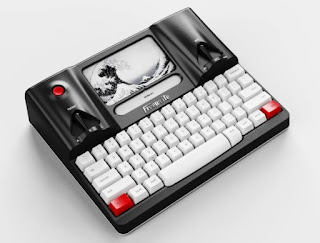I don't think anyone makes it out of the book without their lives totally turned upside down. Of course, in a way it doesn't matter by the end, but those scars remain in a couple of the characters.
We lose a lot along the way, and I think there are just a handful that remember what really happened by the end. Yet again, it matters and it doesn't.
We have been conditioned to accept the standards of plot and resolution by Hollywood and other forms of media. The Princess and Price Charming, the three-part story structure, the inevitable romance, and the necessity for happy endings always. If we don't get those we are preconditioned to become unhappy and compare a piece of work to one that does fit within our model of how a narrative arc should flow.
I threw a pane of glass down on the ground and I wrote about my characters picking their way across it. That is my plot. We do have this tendency to mold things that had no structure into things with structure, and you even see that with history books and other forms of non-fiction - of course the story of the computer pioneer had this difficult beginning, the typical Hollywood midpoint struggle, and the successful ending - that fits within our popular-entertainment model of the world, so that's how it must have happened!
Well, only it didn't happen that way, that is just the story that made the best movie.
Wars, biographies, the events of history, and even our entertainment - it feels like everything is colorized into our popular fairy-tale model after the fact and retold in the traditional narrative model. Even things that didn't happen "that way" will be molded and shaped after the fact to fit the model. Even if a director consciously abandons the 3-part fairy-tale story model someone will come along after the fact and find a way to fit it into how we were conditioned to see stories and fables.
I didn't want to write my book that way. She had trouble sticking to one timeline and story arc she had no control of her position in time. She jumps back, forward, and all over the place trying to figure out what's happening to her and how she is going to survive. She can't even control it most of the time, and others put her in positions that she has no control over.
Yet she reacts as we would. She picks herself up and survives. No matter what fragment of the glass pane she's on, we feel her pain and we share her emotions. Like the ant working its way across the glass, we follow Jessica through her trials and choices for good or worse, and that is the story.
What ultimately ends up happen on each shard of time is interesting, and it pulls us into the whole of the story. She is the thread and arc in which we experience her world, not an artificial construct of traditional storytelling narrative.
Her story is a lot like the ones in our lives, fragmented, disjointed, lost, and without a feeling of home or connection. Even if there is that grounding in a place we call home, there is an unsettling feel to it all like the moment is temporary and fleeting.
It's life, and the figments of narrative we use to cross this moment in time, and where we end up with our choices and actions. Some for the negative, and hopefully we make selfless choices for the good of us all.
Home for authoress Sylvia Storm's writing, projects, previews, and news. Also, thoughts, reviews, experiences, and commentary for writers and creators of fiction.
Thursday, October 16, 2014
Subscribe to:
Post Comments (Atom)
Freewrite Smart Typewriter
https://getfreewrite.com/products/freewrite-smart-typewriter-3rd-gen Well, thanks to this device, my five-year bout of writer's block is...

-
Love. It's all too precious a resource, and at times it is easy to think the world is running out. Like air, we need love to live. ...
-
There's always that moment in your book where the initial rush wears off, and you start thinking hard about it. You reflect on your open...
-
I never intended Colonel Anderson Becks to be that important of a character, but he surprised me. He was "the soldier who spoke at th...
No comments:
Post a Comment